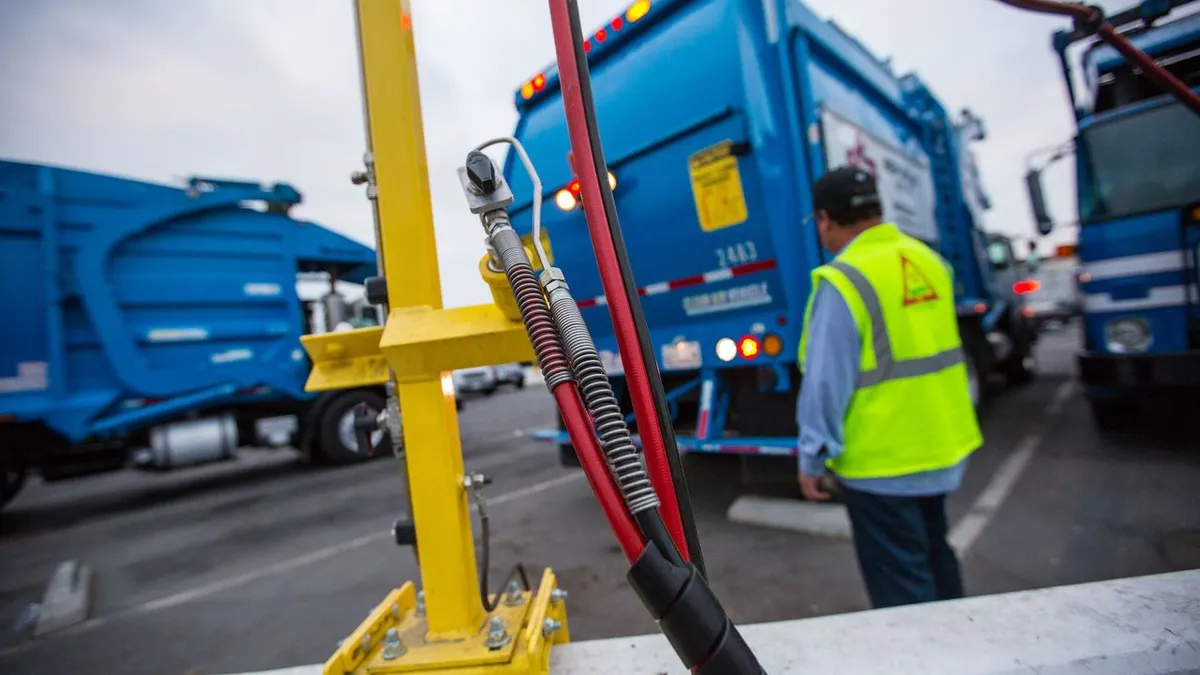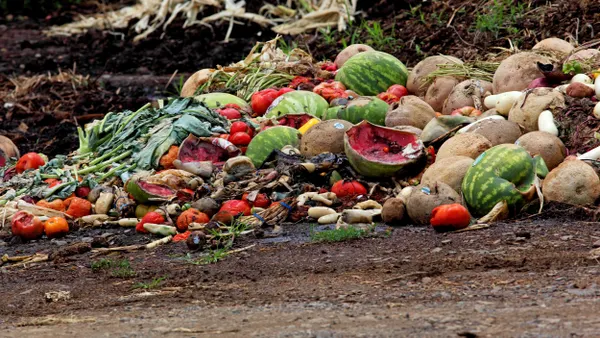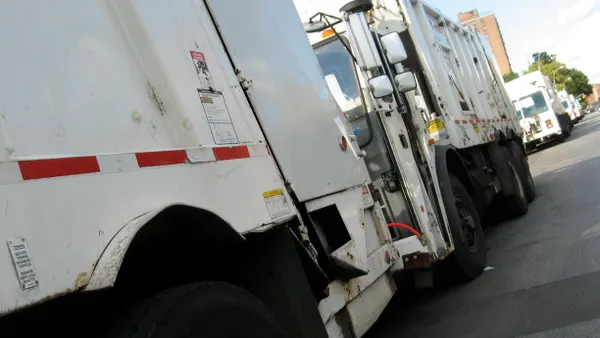Dive Brief:
- Environment and Climate Change Canada reported that the volume of fuel registered in the country's Clean Fuel Regulation program jumped 417% from 2023 to 2024, an analysis by market intelligence firm cCarbon found. That's a much larger increase than that of any other fuel included in the program, such as ethanol, biodiesel and sustainable aviation fuel.
- The surge is likely due in part to new projects responding to the recently created market incentive, said Aakanksha Srisha, an associate with cCarbon. Markets for the fuel, including utilities using it for heat and natural gas-powered vehicle fleets that have yet to procure RNG, are also demand drivers for the fuel. “It’s a watershed year,” Srisha said.
- This is the second annual report from regulator ECCC, which launched its clean fuels program on July 1, 2023. Like the clean fuel programs in British Columbia, California and other U.S. states, the CFR assigns a carbon intensity value to fuels. It requires producers of certain high-carbon fuels to purchase credits generated by low-carbon fuels like renewable natural gas.
Dive Insight:
Clean fuel programs in North America have provided a powerful incentive for RNG production. That’s especially true for on-farm anaerobic digesters that process manure. Canada’s CFR program, like California’s LCFS, includes a boost to RNG’s carbon intensity score calculated from the emissions avoided by not letting manure decompose without gas capture.
The mechanism, which environmental groups say unnecessarily incentivizes factory farms, gives RNG producers a strong financial incentive to register their fuels with these programs and generate sellable credits. In Canada, fuels can also be registered both with the national CFR program and British Columbia’s LCFS, creating a stacking incentive that further boosts the value of the fuels.
Those incentives matter because the technology used for anaerobic digestion can be expensive and might not otherwise be economical, Srisha said. Additional incentives could further drive adoption of RNG in the heating and electricity sectors, she added.
“Clean fuels programs and, in general, mandates have become increasingly important for RNG to make sense,” Srisha said.
Julie Flynn, who is Canada director for RNG developer Waga Energy, said the CFR program “has acted as a catalyst, accelerating both production and adoption.” The company has four active RNG projects in Canada and one in development, and is currently fielding a bid from private equity investor EQT for a majority stake in the business.
”From our perspective, this regulation has done more than just set targets—it’s created a real market. Utilities have led the charge, but we’re now seeing corporate buyers entering the space, which is a strong signal of long-term confidence in RNG as a decarbonization tool,” Flynn said in an emailed statement.
Srisha noted the jump in RNG registration follows a similar pattern seen in U.S. states that have adopted clean fuel programs. There, incentives encourage a buildout of RNG projects once programs are implemented, due to demand for RNG as a transportation fuel. But the transportation market can become saturated after a few years as most fleets make the switch to RNG, forcing producers to need new end markets to boost demand for their fuel.
"The thing with transport is, once you’ve reached a certain percentage of blending, it becomes stable," Srisha said.
The Canadian market has the advantage of blending requirements for fuel used for heating, which can be a long-term driver of demand for RNG. Both FortisBC and Énergir — utilities that serve British Columbia and Quebec, respectively — have set minimum RNG procurement requirements. FortisBC touted itself as the first North American utility to automatically allocate 1% RNG into its fuel mix for all of its customers in June 2024.
Quebec regulations also require 5% of the natural gas distributed to utility customers to be RNG in 2025. That requirement ratchets up to 10% in 2030.
Those blending requirements have led to deals with anaerobic digestion companies in the U.S. and Canada. FortisBC inked a 20-year offtake agreement with EverGen Infrastructure subsidiary Fraser Valley Biogas last summer. Énergir signed its own 20-year agreement with Viridi Energy around the same time.
In the U.S., other clean fuel updates are pending. New Mexico is in the process of finalizing its program, while the comment period for the U.S. EPA’s update to the Renewable Fuel Standard just closed.
Correction: This story has been updated with the correct spelling of cCarbon’s associate, Aakanksha Srisha.














